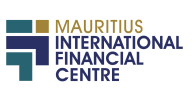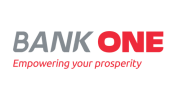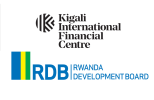Top Fintech Companies Revolutionizing Nigeria
The financial landscape in Nigeria is undergoing a significant transformation.
This change is driven by fintech companies, which are leveraging technology to redefine how financial services are delivered.

From digital lending platforms to mobile payment solutions, these companies are providing innovative alternatives to traditional banking. They are not only simplifying transactions but also driving financial inclusion in the country.
In this article, we will explore some of the top fintech companies that are revolutionizing Nigeria. We will delve into their innovative services, their impact on the economy, and how they are shaping the future of digital finance in Nigeria.
Whether you are an investor, an entrepreneur, a financial professional, or simply a tech enthusiast, this article will provide you with valuable insights into the Nigerian fintech sector.
Join us as we journey through the world of fintech in Nigeria, a world where technology meets finance to create a brighter future.
The Rise of Fintech in Nigeria
Nigeria’s fintech sector is experiencing a rapid growth. This growth is fueled by a combination of factors, including a young and tech-savvy population, high mobile penetration, and supportive government policies.
The country’s fintech landscape is diverse, with companies offering a range of services. These include digital lending, mobile payments, insurance tech, wealth management, and more.
Key factors driving the fintech boom in Nigeria include:
- High mobile phone penetration: With over 172 million mobile phone users, Nigeria provides a fertile ground for mobile-based fintech solutions.
- Young and tech-savvy population: Nigeria’s median age is 18 years, and this young population is quick to adopt new technologies.
- Supportive government policies: The Central Bank of Nigeria (CBN) has been supportive of the fintech sector, implementing policies that encourage innovation and growth.
The Central Bank of Nigeria’s policies have played a crucial role in the rise of fintech. The CBN has implemented regulations that foster a conducive environment for fintech companies to thrive.
From licensing guidelines to regulatory sandboxes, the CBN’s approach has been instrumental in driving the growth of fintech in Nigeria.
Leading the Charge: Profiles of Top Fintech Companies

One of the frontrunners in Nigeria’s fintech scene is Flutterwave. Founded in 2016, Flutterwave provides a payment infrastructure for global merchants and payment service providers.
The company’s platform allows clients to customize payment applications. It has processed over $9 billion in transactions since its inception. Flutterwave is a shining example of Nigerian fintech success on the global stage.

Paystack is another leading player in the Nigerian fintech ecosystem. Launched in 2015, Paystack offers businesses an online payments platform to accept payments from anywhere in the world.
In 2020, Paystack was acquired by Stripe for over $200 million. This acquisition marked a significant milestone for Nigerian fintech, highlighting the sector’s potential to attract international investment.

Interswitch, founded in 2002, is one of Nigeria’s earliest fintech companies. It provides electronic payment processing services for businesses and individuals.
Interswitch also operates Verve, Nigeria’s most used payment card, and Quickteller, a consumer payments platform. The company’s long-standing presence in the market underscores the growth and resilience of Nigeria’s fintech sector.
Paga is a mobile payments company that was established in 2009. It offers a platform for users to transfer money, pay bills, and buy things digitally.
Paga has over 14 million users and has processed billions of dollars in transactions. The company’s success demonstrates the demand for mobile money solutions in Nigeria.
Carbon, formerly known as Paylater, is a digital lending platform. Founded in 2016, Carbon provides instant loans to individuals and small businesses.
In addition to lending, Carbon also offers investment and savings products. The company’s diverse range of services illustrates the breadth of solutions offered by Nigerian fintech companies.
Innovations in Digital Lending and Financial Inclusion
Digital lending platforms are transforming the financial landscape in Nigeria. They provide quick, hassle-free loans to individuals and small businesses. This is a game-changer in a country where traditional banks often have stringent lending criteria.
Companies like Carbon and FairMoney are leading this digital lending revolution. They use data analytics and artificial intelligence to assess credit risk. This allows them to offer loans to those who might otherwise be deemed too risky by traditional banks.
Fintech is also playing a crucial role in reaching the unbanked and underbanked populations in Nigeria. Mobile money platforms like Paga and OPay are providing these individuals with access to financial services.
These platforms allow users to make transactions, pay bills, and even save money. All without needing a traditional bank account.
This is driving financial inclusion in Nigeria, a country where over 40% of adults are unbanked. Fintech companies are truly democratizing access to financial services.
Fintech and the Nigerian Economy
The fintech sector is making a significant contribution to Nigeria’s Gross Domestic Product (GDP). In 2019, the sector contributed 1.25% to the country’s GDP. This figure is expected to rise as the sector continues to grow.
Fintech is also playing a key role in diversifying Nigeria’s economy. Traditionally reliant on oil, the country is now seeing growth in its tech sector. Fintech companies are at the forefront of this transformation.
The success of fintech companies is attracting more tech talent to Nigeria. Many young Nigerians are choosing careers in fintech over more traditional sectors. This is creating a vibrant tech ecosystem in the country.
Fintech companies are also creating jobs. In 2020, the sector employed over 10,000 people. As more fintech startups emerge, this number is set to increase.
In conclusion, fintech is not just revolutionizing financial services in Nigeria. It’s also driving economic growth and job creation.
Challenges and Future Outlook
Despite the rapid growth, fintech companies in Nigeria face several challenges. Regulatory hurdles are one of the main obstacles. The Central Bank of Nigeria is still developing regulations for the sector. This can create uncertainty for fintech startups.
Cybersecurity is another major concern. As more financial transactions move online, the risk of cyber attacks increases. Fintech companies must invest in robust security measures to protect their customers’ data.
Looking ahead, the future of fintech in Nigeria is promising. Experts predict that the sector will continue to grow. More innovative products and services are expected to emerge.
The use of blockchain and cryptocurrencies is also likely to increase. These technologies have the potential to further revolutionize the financial landscape in Nigeria.
In conclusion, while challenges exist, the outlook for fintech in Nigeria is positive. The sector is poised for continued growth and innovation.
Conclusion
Fintech companies in Nigeria are playing a transformative role. They are revolutionizing the financial landscape, driving financial inclusion, and contributing to the economy. Despite challenges, their impact is undeniable and their potential is immense.
Looking ahead, the future of fintech in Nigeria is bright. As technology continues to evolve, so too will the fintech sector. With continued innovation, investment, and regulatory support, fintech companies are set to further reshape Nigeria’s financial ecosystem. The journey is just beginning, and the best is yet to come.













































